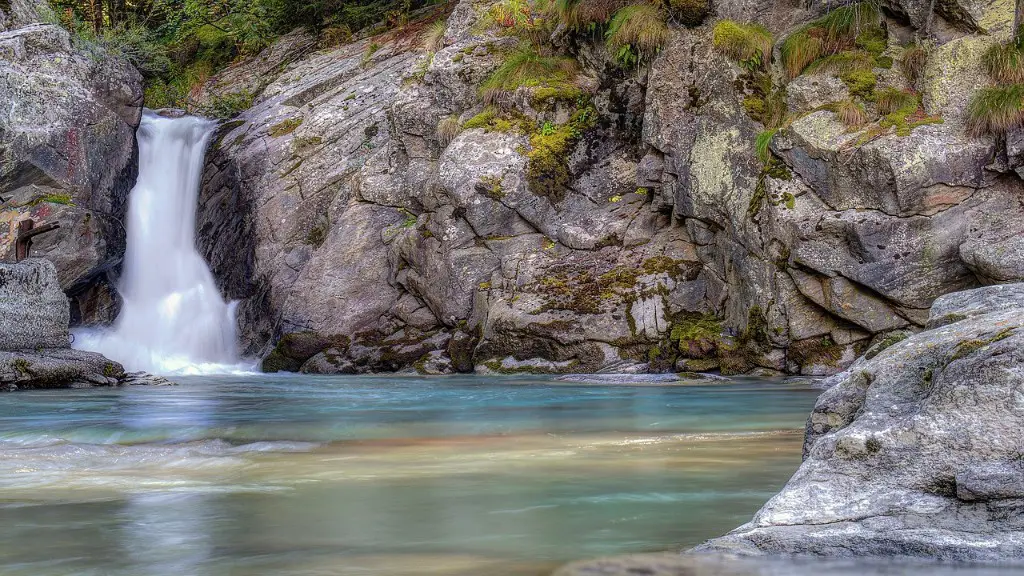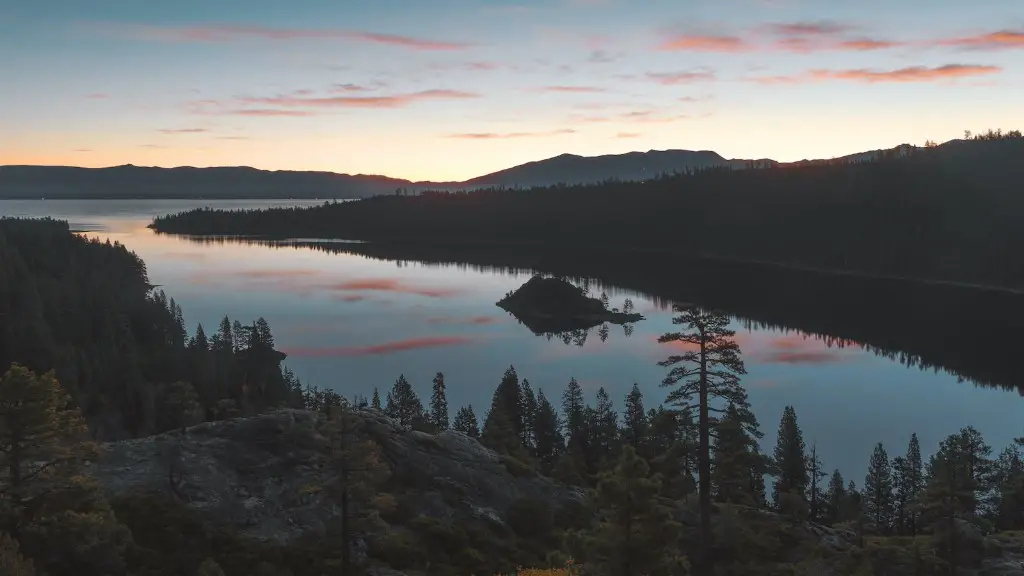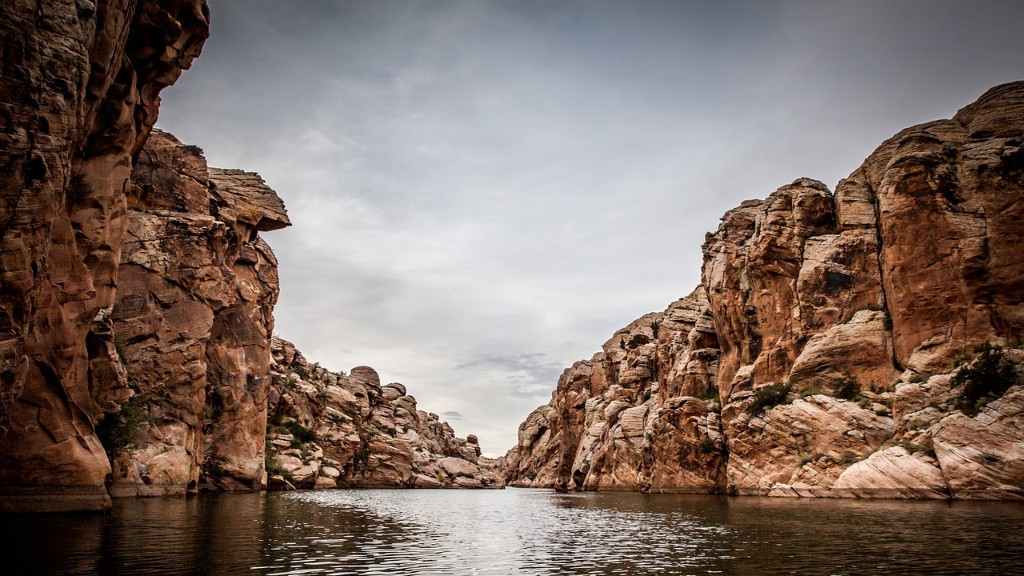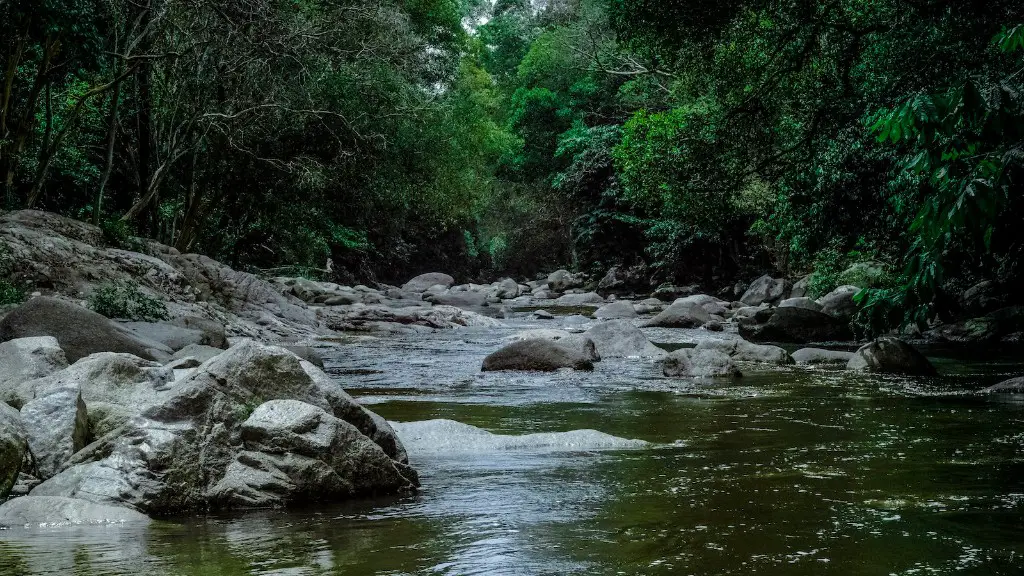Is The Mississippi River In Mississippi?
The Mississippi River is one of the world’s most iconic rivers, and its long and winding course has mesmerized explorers and inhabitants for centuries. But is the Mississippi River actually in the state of Mississippi?
The answer is yes, although the Mississippi River is much more than the river within the state of Mississippi. The Mississippi River is a transcontinental river system, with its source being in Lake Itasca, Minnesota and its mouth opening into the Gulf of Mexico in southern Louisiana.
The most commonly recognized part of the Mississippi River is a 2,350-mile stretch that runs through 10 U.S. states. Of these states, Mississippi is 4th in terms of its distance within the Mississippi River; its 324-mile segment is the 4th longest within the river’s total length. This section of the river runs southward through Mississippi, starting at the state’s northwestern corner and concluding at its southern border.
The Mississippi River plays a critical role in the state’s history, economy, and culture. Dating back to the Choctaw Indians, the Mississippians, and the colonialists, the river has been an integral part of life in Mississippi for centuries. Early inhabitants relied on the Mississippi for fishing, transportation, and resources, and the early growth of trade and commerce in the area revolved around it.
Today, the Mississippi River is an important resource for Mississippi’s economy. Agriculture, tourism, and the transportation of goods are all heavily reliant on the Mississippi River. The ports in Southern Mississippi are key components of the international shipping network, and the abundance of natural resources throughout the Mississippi River is utilized to create many industrial, agricultural, and commercial products throughout the region.
The Mississippi is also an important part of the state’s culture. The Delta, located in the northwestern part of the state, is home to a unique culture and musical heritage, known throughout the world as the cradle of the blues. The state also hosts a variety of festivals and events related to the Mississippi River, such as the annual Mississippi River Festival, which includes musical performances and river cruises, and the Mississippi Catfish Festival, which celebrates the state’s long history of catfishing.
In short, the Mississippi River is an essential part of the state of Mississippi. From its role in the state’s economy and culture to its long-standing place in the history of the region, the Mississippi River is an integral part of the 50 states.
Relevent Data
The Mississippi River, one of the longest rivers in the United States, is about 2,350 miles in length, with 323 miles flowing through Mississippi. Along with the Missouri and the Ohio Rivers, it is part of the Mississippi-Missouri-Red River watershed, the fourth largest watershed in the world. The drainage basin covers parts of 31 states, including most of the states found in the Midwestern and southeastern United States. It is an important economic resource, providing water for irrigation, transportation and industrial uses, as well as being an important recreational resource. It has also been utilized by humans for centuries, providing abundant fish and game, fertile soil, and an essential link to the Gulf of Mexico.
Perspectives From Experts
The Mississippi River is an important part of the Mississippi landscape and culture. Speaking about the importance of the river, Dr. Michelle Williams, geology professor at the University of Mississippi, said: “The Mississippi River is the lifeblood of the Mississippi landscape. Not only does it provide us with our cultural identity, but it also creates important economic opportunities. It is our transportation highway for goods, it is a great source for recreation, and it provides us with an abundance of natural resources.”
The river has also been an important resource for scientists studying the area’s geology and ecology. According to Dr. Martha Reis, biologist at the Mississippi Department of Wildlife and Fisheries, “The Mississippi River provides us with a unique opportunity to learn more about the natural world and its underlying mechanics. We can look at things like hydrology and river dynamics, climate change and its effects on ecosystems, and the ways in which humans interact with the environment.”
Analysis Of Findings
It is clear that the Mississippi River plays an important role in Mississippi’s history, economy, and culture. Its importance to the region extends beyond just the state of Mississippi itself, as the river is an integral part of the larger transcontinental river system, providing water for much of the Central and Southern United States. From its role in trading, transportation, and recreation to its impact on the state’s history and culture, the Mississippi River is an integral part of the 50 states.
The Mississippi River has also provided a valuable resource for scientists in the region. Its unique geography and ecology have made it an invaluable source of data on climate change, river dynamics, and the ways humans interact with the environment. Its importance to the region as both an economic and ecological resource cannot be overemphasized.
Impact Of Tourism
The importance of the Mississippi River to the people of the region is evident in its impact on tourism. The Mississippi Delta, located in the northwestern part of the state, is home to a vibrant culture and musical heritage, which has brought tourists from all over the world to experience the blues. The state’s ports provide plenty of recreational activities, from boat tours and cruises to fishing and other activities, giving locals and tourists alike an opportunity to experience the river and its many attractions up close.
The river has also been an important economic resource, providing resources for the transportation of goods, industrial products, and agricultural products. The presence of the Mississippi has spurred growth in cities throughout the region, providing jobs and revenue through agricultural and industrial production, as well as through tourism.
Overall, it is clear that the Mississippi River plays an important role in the state of Mississippi. From its role in the state’s economy and culture to its long-standing place in the history of the region, the Mississippi River is a vital part of the 50 states.
Environmental Aspects
While the Mississippi River is an important resource for the region, it is also important to consider the potential environmental impacts it can and does have on the ecosystem. The river is responsible for the transport of pollutants from agricultural and industrial runoff, as well as from landfills and other sources. The impact of these pollutants is far-reaching, as they can contaminate not just the river, but also the surrounding lands and rivers.
It is also important to consider the consequences of dams, which have been built along the river to provide hydroelectric power and regulate water flow, both of which can have adverse impacts on local ecosystems. Human activities that impact the river, such as agriculture, forestry, and fishing, can also cause environmental damage, as they alter the land and the water, disrupting the natural balance.
The long-term effects of these activities are still largely unknown, and as such, it is important for communities to understand the potential risks and take steps to minimize them, such as by developing sustainable practices that don’t harm the river or its surrounding environment.
Conservation Efforts
Conservation efforts have been developed over the course of the years to help preserve the Mississippi River’s resources and maintain its health. For example, the Mississippi River Basin Alliance (MRBA) works with partners across the basin to address a range of threats, including agricultural and industrial pollution, sedimentation, and invasive species.
The MRBA has developed a number of initiatives to help reduce sedimentation and chemical pollution in the river, and to help restore and protect the wildlife populations. These initiatives include riparian restoration projects, land use management plans, and habitat conservation projects. The MRBA also works to educate the public on river-related issues, such as the importance of proper waste disposal and Reduce, Reuse, Recycle initiatives.
The MRBA’s work is important for the future of the Mississippi River, as it helps to ensure the safety and health of the river and its inhabitants. A healthy river is an important resource not just for Mississippi, but for the entire nation as well.





